What was the life of LGBT+ community like under communism?
Many had to hide their sexual orientation or undergo inhumane therapies. Under communism, nobody was a homosexual. Such things simply did not exist. They were taboo.
Or were they?
The state ran ‘pink files’ with information about homosexuals in the country. They were often used to humiliate members of the LGBT+ minority in former Czechoslovakia.
A new play, ‘Communism with a Gay Face’, written by Andrej Kuruc and directed by Marián Amsler, reveals more. Its title serves as an ironic metaphor to the failed 1968 Prague Spring, when a group of communists wanted to rebuild and improve the regime, giving it a ‘human face’.
The story takes place in the eighties. A young man from the countryside comes to the capital with a desire to recover from homosexuality. On the street, he meets a cheerful and weird group that has its own world outside communism. The young gay man gradually explores how the community lives in the city.
Inspired by the stories of LGBT+ people living in those times, you can watch the premiere of this play, performed by actors of the NOMANTINELS Theatre and the DPM Theatre, online on December 13 at 19:00 CET. Tickets are available here.
Travel
A hot spot for climbers just outside Bratislava
Before its destruction by Napoleon’s troops, Pajštún Castle used to protect a trade route and part of the border of the Kingdom of Hungary. Today, it is a great tip for a day trip and a mecca for Bratislava climbers.
Gargoyle, spa, and wooden churches: Welcome to Bardejov
Bardejov, a picturesque Slovak town, boasts many wooden churches in its vicinity, a well-preserved downtown, and a spa. When Matt Reynolds was writing a travel guide in 2004, he had to pay more for a spa bath. Why? He was a foreigner. How did he handle the issue?
Have you climbed Baranec?
Baranec, a peak named after the Slovak word for ram, baran, is the third highest peak of the Western Tatras. It looms over the town of Liptovský Mikuláš and, together with Kriváň in the High Tatras, they create a panorama of the town.
In the pandemic, Slovaks do not miss exotic holidays
Neither do they miss foreign cuisine. People in Slovakia long for nature and the sea the most, which they cannot explore much because of anti-coronavirus restrictions, a poll for the Kiwi.com website has shown.
Enchanted by Bratislava’s Old Town, tourists fail to explore the city’s other charms
Unlike Japanese people, to whom Bratislava remains an unexplored city, Japanese Ambassador Makoto Nakagawa has already toured many places in the Slovak capital, despite his arrival in late June and the ongoing pandemic.
“I’m really enjoying things in Bratislava,” he said in the Spectacular Slovakia podcast.
What things is he talking about? Listen to the latest episode or read this sum-up story.
The renovation of Deduško Večerníček’s little house
Everyone in Slovakia knows the animated old man, known as Deduško Večerníček, who announces the start of a short fairytale on the Slovak public-service TV channel Dvojka by lightning stars above his house in the early evening, accompanied by his dog and a legendary theme tune.
His little thatch roof house, which actually stands in the village of Nová Sedlica, the eastern-most settlement in Slovakia, has been recently reconstructed after many years of disrepair.
Now that you know what the house looks like in real life, it is time to sit back and meet the old man and his dog, lightning up the sky in all four seasons.
Culture in short
Archaeology: The Spiš Museum in Spišská Nová Ves has presented a significant discovery – a Celtic Bronze statue, found in the village of Jánovce, near Poprad.
Gingerbread: The International House of Art for Children, Bibiana, runs an interactive exhibition on the history of gingerbread until February next year.
Walt Disney: Characters from Walt Disney stories will be strolling up and down Main Street in Košice on December 11 between 16:00 and 18:00, the city announced on Facebook.
Music: The independent cultural centre Nová Cvernovka in Bratislava will stream a free electronic music concert from unusual sites within the centre.
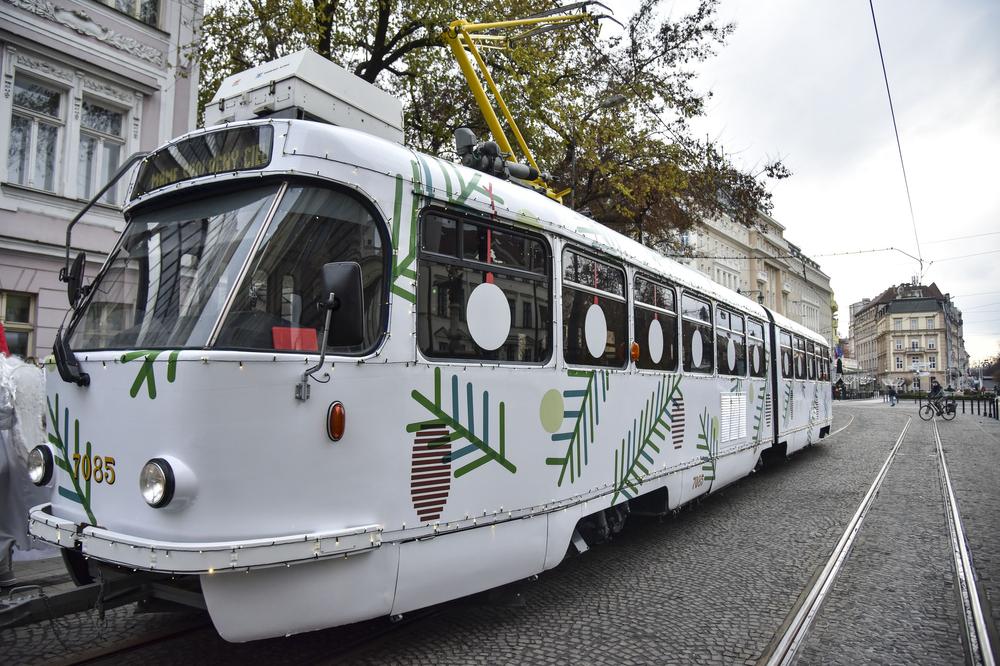 PHOTO OF THE WEEK: A Christmas tram has returned to Bratislava. It runs between the city’s main railway station and Ľudovít Štúr Square until December 30. Click on the picture to see its timetable. The very first Christmas tram hit the rails 10 years ago. (source: TASR)
PHOTO OF THE WEEK: A Christmas tram has returned to Bratislava. It runs between the city’s main railway station and Ľudovít Štúr Square until December 30. Click on the picture to see its timetable. The very first Christmas tram hit the rails 10 years ago. (source: TASR)
Winery: Slobodné vinárstvo, a Slovak winery near Hlohovec, has been mentioned in The Financial Times story about orange wine and Chef Santiago Lastra’s new London restaurant.
The Košice ‘Eye’: A Košice Ferris wheel will be lit up over the weekend. The initial date, December 10, had to be deferred because of a fire in a local block of flats.
Slovak film: Until December 13, the Slovak Film Week runs in the city of Moscow. Six films from 2018 and 2019, as well as The Barnabas Kos Case from 1965, have been or will be screened.
Weekend reads
New ways of exploring Bratislava
Alternative tour operators have taken the novel coronavirus as a challenge, to which they have responded with new types of tours. One is an interactive discovery game that takes visitors around the city. The other alternative is private and small group off-the-beaten-track tours, including the first virtual tour of communist Bratislava.
Our national theatre is outside the league of European theatres, ex-ballet dancer says
The Slovak National Theatre (SND) has not reached the level of theatres in Europe, former ballet dancer Mario Radacovsky claims. Being one of the candidates for the post of the national theatre’s general director, he is hoping to win the chair and change things for the better. In an interview, Radacovsky also talks about an unfortunate quality of Slovaks – the ability to give up too soon.
How to enjoy Christmas in Bratislava
You can still have quality time in Bratislava during Christmas despite the pandemic. Check out the list of happenings and pick out your favourite. Our tip: On December 12, the Bratislava City Museum will launch an exhibition devoted to toys and games which parents and grandparents might have found under a Christmas tree in the past.
Samuel Hošek’s time to shine
After years of various collaborations, Slovak musician Samuel Hošek has released his debut album titled Our Time is Now. The record of 12 tracks, sung in perfect English and sounding, honestly, non-Slovak, is a breath of fresh air on the Slovak music scene.
“I have never calculated to create a hit,” Hošek said, adding that he only wanted to express himself and materialise his musical ideas as accurately as possible.
The songs tell stories of relationships, the process of getting to know oneself and finding one’s own identity. Hošek also addresses the issue of faith in God, balance of life, limitations and openness, and understanding of a different culture.
“I think the world is too divided these days,” the Slovak musician said, hoping to see racism disappear very soon and religion unite people, instead of dividing them.
You can have a listen to his album on streaming services. Here is his latest single Magic Carpet.



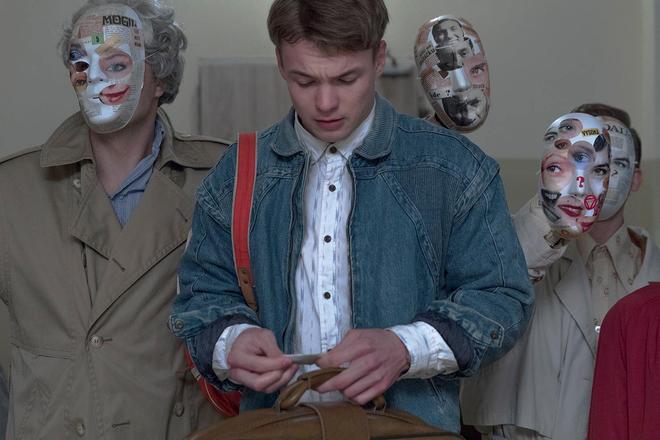 The 'Communism with a Gay Face' play premieres on December 13, 2020. (source: Ľuboš Kotlár)
The 'Communism with a Gay Face' play premieres on December 13, 2020. (source: Ľuboš Kotlár)
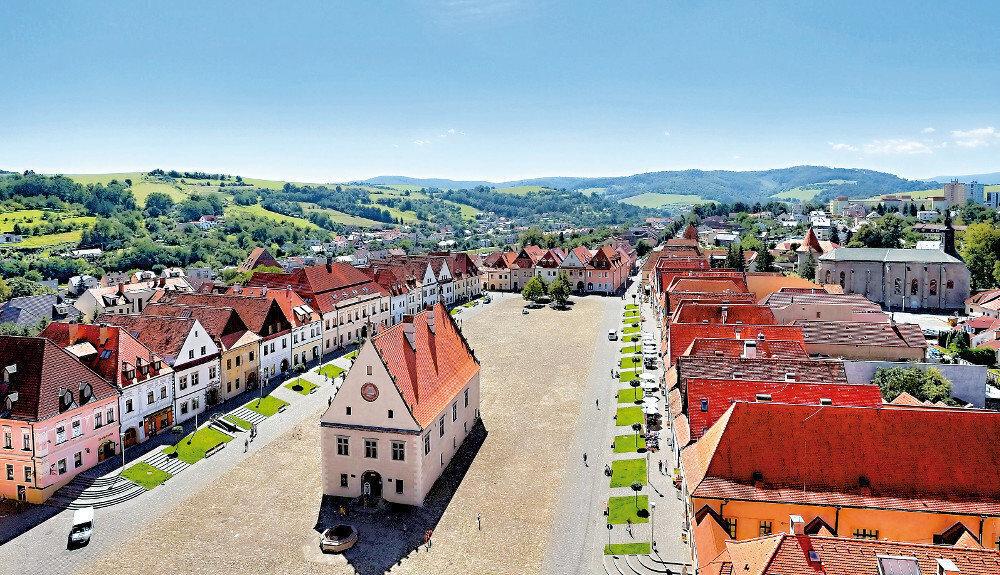 Bardejov. (source: OOCR Šariš Bardejov)
Bardejov. (source: OOCR Šariš Bardejov)
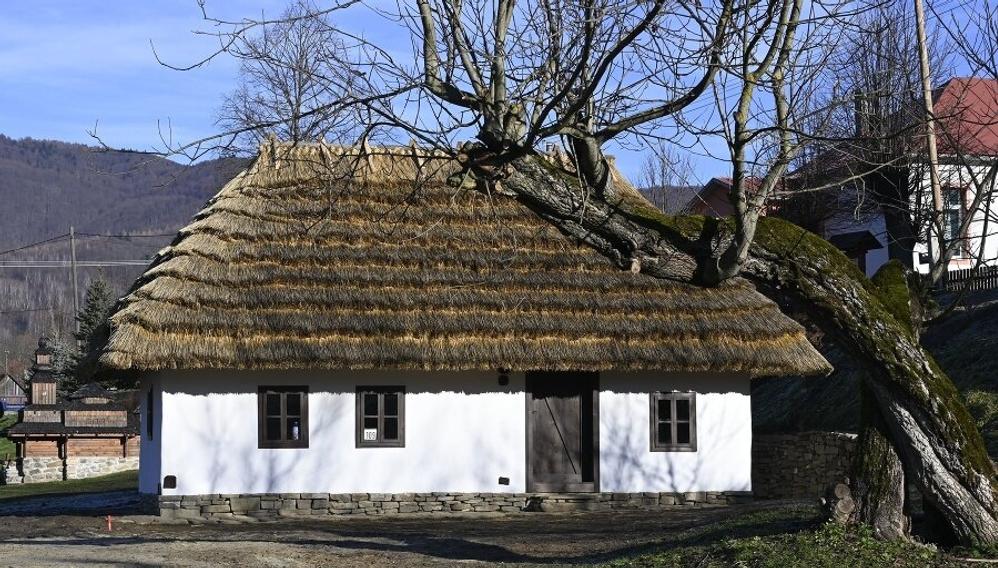 Deduško Večerníček's house in Nová Sedlica. (source: TASR)
Deduško Večerníček's house in Nová Sedlica. (source: TASR)
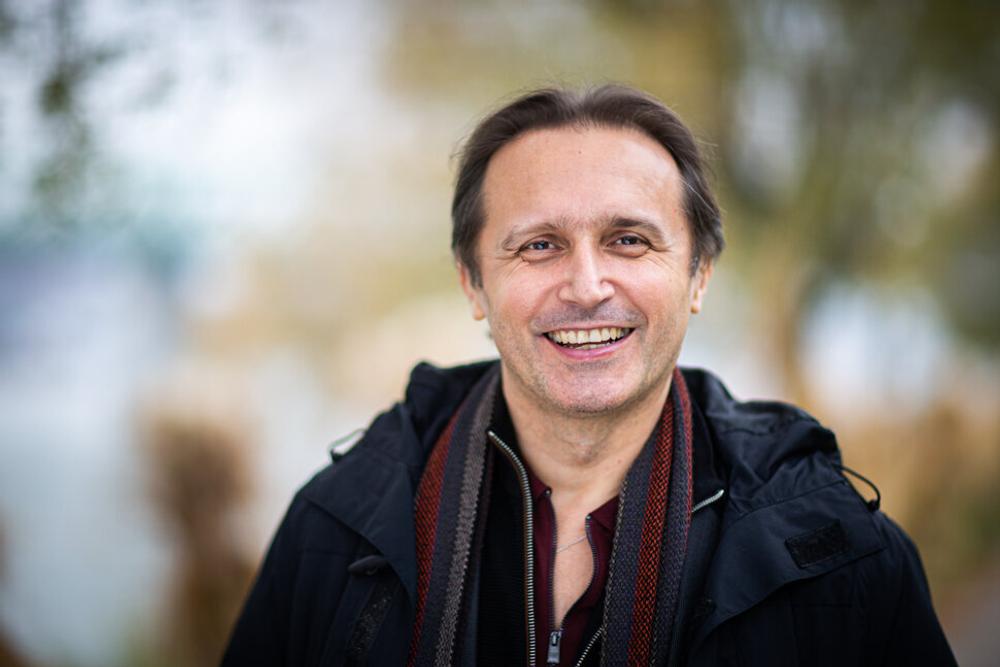 Mário Radačovský would like to become the new general director of the Slovak National Theatre. (source: SME - MARKO ERD)
Mário Radačovský would like to become the new general director of the Slovak National Theatre. (source: SME - MARKO ERD)